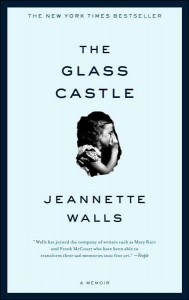 I paused at Quill and Quire, to read a link to an article about another piece of writing–a paper by an academic on the impact of Oprah Winfrey’s famous book club, the one that propelled brand new writers into the limelight, and garnered tons of sales for established ones. The paper titled ‘You Get a Book! Spillovers, Combative Advertising, and Celebrity Endorsements’ written by Craig L. Garthwaite at Northwestern University and NBER apparently makes the case that the club didn’t increase sales to other areas of the book world, I say apparently, because I’ve tried to read the entire paper itself, and was bored within seconds, except for a paragraph that had me seeing red, as the expression goes. But first, a synopsis of his theory:
I paused at Quill and Quire, to read a link to an article about another piece of writing–a paper by an academic on the impact of Oprah Winfrey’s famous book club, the one that propelled brand new writers into the limelight, and garnered tons of sales for established ones. The paper titled ‘You Get a Book! Spillovers, Combative Advertising, and Celebrity Endorsements’ written by Craig L. Garthwaite at Northwestern University and NBER apparently makes the case that the club didn’t increase sales to other areas of the book world, I say apparently, because I’ve tried to read the entire paper itself, and was bored within seconds, except for a paragraph that had me seeing red, as the expression goes. But first, a synopsis of his theory:
“Abstract
This paper studies the economic effects of endorsements. In the publishing sector, endorsements from the Oprah Winfrey Book Club are found to be a business stealing form of advertising that raises title level sales without increasing the market size. The endorsements decrease aggregate adult fiction sales; likely as a result of the endorsed books being more difficult than those that otherwise would have been purchased. Economically meaningful sales increases are also found for non-endorsed titles by endorsed authors. These spillover demand estimates demonstrate a broad range of benefits from advertising for firms operating in a multi-product brand setting.”
In other words, her endorsements increased sales for the endorsed book, and for books by the endorsed author for a certain amount of time, but the endorsements didn’t gain new readers, nor did it increase the overall buying of a variety of titles. People who paid attention to Oprah’s favorites bought the favorite, and maybe another title by the same author–but didn’t go outside of that criteria and purchase for example, the History of the Migrating Dodo Bird, or The Economics of Owning and Operating a Flea Circus, or any of the Janet Evanovich bounty hunter series.
So how does Mr. Carthwaite come to these conclusions? With a whole bunch of mathematical equations. I may be able to buy into his theories if he hadn’t made the fatal mistake of categorizing genres via some scanning machine’s data. And if he didn’t bluntly assert that people who read mysteries, romances, and action novels need less education than those who read straight fiction. Now, them’s fightin’ words.

